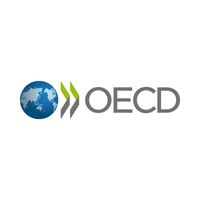Trade Turbulence: The World Bank's Stark Warning on Global Growth
June 11, 2025, 6:18 am

Location: United States, District of Columbia, Washington
Employees: 10001+
Founded date: 1944
Total raised: $530M

Location: France, Ile-de-France, Boulogne-Billancourt
Employees: 1001-5000
Founded date: 1961
The World Bank has sounded the alarm. Global economic growth is expected to crawl at a mere 2.3% in 2025. This is a stark downgrade from earlier predictions. It’s the slowest pace since the aftermath of the 2008 financial crisis, aside from periods of outright recession. The world is facing a storm, and trade tensions are the winds fueling it.
The forecast paints a grim picture. The U.S. economy is projected to grow by just 1.4%, down from previous estimates. The eurozone isn’t faring much better, with growth expectations slashed to 0.7%. The ripple effects of trade wars are palpable. Tariffs imposed by the U.S. have sent shockwaves through global markets. Countries are feeling the pinch. Uncertainty looms large, casting a shadow over business investments.
China, the world’s second-largest economy, is also in the crosshairs. Growth is expected to slow from 5% in 2024 to 4.5% this year, and further down to 4% next year. The Chinese economy is like a giant ship navigating through turbulent waters. The tariffs have become an anchor, dragging it down. The real estate market is in disarray, and an aging workforce adds to the woes.
India, however, stands out as a beacon of hope. It is projected to be the fastest-growing major economy, expanding at 6.3%. Yet, even this growth is a step back from previous forecasts. The Indian economy is like a sprinter, but it’s running with a weight on its back.
Japan’s growth is expected to inch up from a meager 0.2% to 0.7%. This is still far from the 1.2% the World Bank had hoped for. The Land of the Rising Sun is struggling to find its footing.
The World Bank’s report highlights a critical issue: trade uncertainty. It’s like a fog that obscures the path ahead. Businesses are hesitant to invest when the rules of the game keep changing. The unpredictable nature of tariffs has created a climate of fear. Companies are holding back, waiting for clarity.
The Organization for Economic Cooperation and Development (OECD) has echoed these sentiments. It has also downgraded its growth forecasts, citing trade-related disruptions. The OECD expects global growth to slow to 2.9% in 2025. The message is clear: trade tensions are a formidable barrier to economic progress.
Negotiations are ongoing. The U.S. and China are in talks, trying to find common ground. In London, trade discussions are taking place, but the outcome remains uncertain. The stakes are high. If tariffs are reduced, the World Bank suggests that global growth could see a slight uptick. A resolution could add 0.2 percentage points to growth over the next two years.
But the clock is ticking. The U.S. has imposed steep tariffs on numerous countries, and the pressure is mounting. The European Union is also in the crosshairs, with tariffs set to come into full force soon. The world is watching, waiting for a breakthrough.
The World Bank’s analysis underscores the fragility of the current economic landscape. Trade disputes have upended the policy certainties that once helped reduce poverty and expand prosperity. The post-World War II era of growth is under threat.
As the global economy teeters on the edge, the need for cooperation has never been more critical. Countries must come together to resolve their differences. The path to recovery lies in collaboration, not conflict.
In conclusion, the World Bank’s revised growth forecast is a wake-up call. The world is facing a crossroads. Trade tensions are a formidable foe, and the consequences are far-reaching. Economies are interconnected, and a slowdown in one region can ripple across the globe.
The future is uncertain, but one thing is clear: the world must navigate these turbulent waters with care. The stakes are high, and the time for action is now. The global economy needs a lifeline, and that lifeline is cooperation. Only then can we hope to steer clear of the storm and find a path to prosperity.
The forecast paints a grim picture. The U.S. economy is projected to grow by just 1.4%, down from previous estimates. The eurozone isn’t faring much better, with growth expectations slashed to 0.7%. The ripple effects of trade wars are palpable. Tariffs imposed by the U.S. have sent shockwaves through global markets. Countries are feeling the pinch. Uncertainty looms large, casting a shadow over business investments.
China, the world’s second-largest economy, is also in the crosshairs. Growth is expected to slow from 5% in 2024 to 4.5% this year, and further down to 4% next year. The Chinese economy is like a giant ship navigating through turbulent waters. The tariffs have become an anchor, dragging it down. The real estate market is in disarray, and an aging workforce adds to the woes.
India, however, stands out as a beacon of hope. It is projected to be the fastest-growing major economy, expanding at 6.3%. Yet, even this growth is a step back from previous forecasts. The Indian economy is like a sprinter, but it’s running with a weight on its back.
Japan’s growth is expected to inch up from a meager 0.2% to 0.7%. This is still far from the 1.2% the World Bank had hoped for. The Land of the Rising Sun is struggling to find its footing.
The World Bank’s report highlights a critical issue: trade uncertainty. It’s like a fog that obscures the path ahead. Businesses are hesitant to invest when the rules of the game keep changing. The unpredictable nature of tariffs has created a climate of fear. Companies are holding back, waiting for clarity.
The Organization for Economic Cooperation and Development (OECD) has echoed these sentiments. It has also downgraded its growth forecasts, citing trade-related disruptions. The OECD expects global growth to slow to 2.9% in 2025. The message is clear: trade tensions are a formidable barrier to economic progress.
Negotiations are ongoing. The U.S. and China are in talks, trying to find common ground. In London, trade discussions are taking place, but the outcome remains uncertain. The stakes are high. If tariffs are reduced, the World Bank suggests that global growth could see a slight uptick. A resolution could add 0.2 percentage points to growth over the next two years.
But the clock is ticking. The U.S. has imposed steep tariffs on numerous countries, and the pressure is mounting. The European Union is also in the crosshairs, with tariffs set to come into full force soon. The world is watching, waiting for a breakthrough.
The World Bank’s analysis underscores the fragility of the current economic landscape. Trade disputes have upended the policy certainties that once helped reduce poverty and expand prosperity. The post-World War II era of growth is under threat.
As the global economy teeters on the edge, the need for cooperation has never been more critical. Countries must come together to resolve their differences. The path to recovery lies in collaboration, not conflict.
In conclusion, the World Bank’s revised growth forecast is a wake-up call. The world is facing a crossroads. Trade tensions are a formidable foe, and the consequences are far-reaching. Economies are interconnected, and a slowdown in one region can ripple across the globe.
The future is uncertain, but one thing is clear: the world must navigate these turbulent waters with care. The stakes are high, and the time for action is now. The global economy needs a lifeline, and that lifeline is cooperation. Only then can we hope to steer clear of the storm and find a path to prosperity.